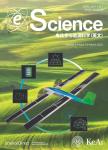Hydrogen isotope effects: A new path to high-energy aqueous rechargeable Li/Na-ion batteries
作者机构:CAS Key Laboratory of Molecular Nanostructure and NanotechnologyInstitute of ChemistryChinese Academy of Sciences(CAS)Beijing 100190PR China University of Chinese Academy of SciencesBeijing 100049PR China
出 版 物:《eScience》 (电化学与能源科学(英文))
年 卷 期:2023年第3卷第3期
页 面:15-21页
基 金:This work was supported by the National Key R&D Program of China(Grant No 2019YFA0705602) the Basic Science Center Project of National Natural Science Foundation of China(Grant No.51788104) the CAS Project for Young Scientists in Basic Research(Grant YSBR-058) the National Natural Science Foundation of China(Grant Nos.21975266,52172252 and 22209188) the Beijing Natural Science Foundation(Grant No.JQ22005)
主 题:Aqueous Li/Na-ion battery Energy density Aqueous electrolyte Electrochemical stability window Hydrogen isotope effect
摘 要:Aqueous rechargeable Li/Na-ion batteries have shown promise for sustainable large-scale energy storage due to their safety,low cost,and environmental ***,practical applications of aqueous batteries are plagued by water s intrinsically narrow electrochemical stability window,which results in low energy *** this perspective article,we review several strategies to broaden the electrochemical window of aqueous electrolytes and realize high-energy aqueous ***,we highlight our recent findings on stabilizing aqueous Li storage electrochemistry using a deuterium dioxide-based aqueous electrolyte,which shows significant hydrogen isotope effects that trigger a wider electrochemical window and inhibit detrimental parasitic processes.



